How Has Coronavirus Hit Skiing & Snowboarding
22nd April 2020 | James Cove, PlanetSKI editor
Last modified on May 15th, 2021
The pandemic is having a devastating impact on the travel industry. How is the snowsports world faring and what might next season look like? PlanetSKI assesses the situation.
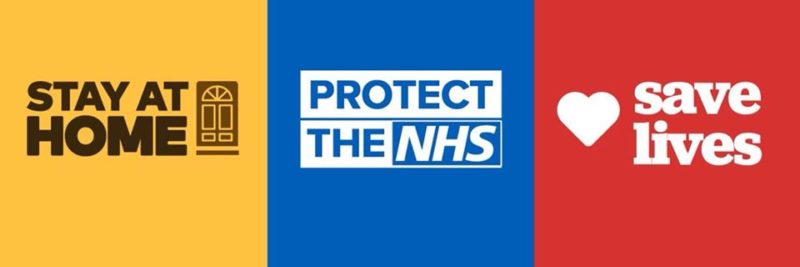
Government coronavirus advice
Most of the ski resorts across Europe and North America shut within a space of a few days in the middle of March.
There was six weeks or so of the season left for many, with the busy Easter holiday period yet to come.
Some closed efficiently and others chaotically.
Everyone from multi-million pound resorts to freelance ski instructors are suffering with no real idea what the future holds.
The UK tour operators are facing a tough time with the vital end of season revenue destroyed, and the future extremely bleak and uncertain.
They are having to refund huge sums for cancelled holidays, and are encouraging people to defer to next season rather than cancel and ask for a refund.
Some may go out of business, others have made staff cutbacks and thousands have been furloughed.
Many operators say to us that they have mothballed much of the day-to-day running of business and are trying to plan for the uncertain post-coronavirus world and simply survive.
The insurance business faces huge pay outs, that will likely mean a rise in premiums next year.
With economic downturn predicted will people even be able to afford to ski next winter anyway as purse strings are tightened?
The global impact of the closures on the ski industry and its suppliers is expected to exceed £154 billion according to one estimate.
“This is the biggest catastrophe to hit the ski industry in my decades of working in it,” said a seasoned operator to PlanetSKI.
“Yet there will be skiing once this has passed and people will want to head to the mountains. Some businesses will undoubtedly go under, but others will be there to pick up the pieces.”
The Covid-19 pandemic brought the ski season to an abrupt halt but if it had been a few weeks earlier it would have destroyed half term.
If it had been in December it would have wiped out the whole season.
RELATED ARTICLES:
Here at PlanetsKi we have been following the coronavirus impact on snowsports in a series of weekly rolling blogs since the crisis began:
April 18th: Coronavirus impact on skiing and snowboarding
April 12th: Coronavirus impact on snowsports
March 29th: Our rolling blog on the impact of Covid-19 continues
March 23rd: PlanetSKI’s rolling blog on the coronavirus impact on skiing continues
RESORTS
The Easter holidays are one of the key periods and, with generally good snow this year, many were planning to head to the slopes and the resorts were looking forward to welcoming guests.
According to research conducted by the Oxford Ski Company, in the average year 38% of all skiing bookings are from after late February.
132 million people around the world would usually be heading to the slopes for the end of the Northern hemisphere seasons and the start of the Southern.
In monetary terms, 132 million skiers represent over £154 billion of revenue for the ski industry and its suppliers, such as airlines, transfer services, and food and drink vendors.
There were a multitude of events planned across the Alps, from music festivals like Snowboxx to sporting competitions such as the Verbier Extreme, the culmination of the Freeride World Tour and the final Alpine Ski World Cup races in Cortina in Italy.
All were cancelled with huge sums of money lost.
People have lost work and perhaps their livelihoods – from the organisers of the events through to bar staff and riggers.
“We have lost 20% of our financial capacity and will see a drop of €1.8 billion in turnover”, said the President of the Association Nationale of Ski Resort Mayors in France, Charles-Ange Ginesy.
In the USA the figures make grim reading.
“This is hard for everyone,” said the National Ski Areas Association, which estimated the country’s 460 ski areas in 37 states could suffer $2 billion in losses stemming from the shutdown.
“Ski areas did not dodge a bullet here.”
March ranks as not just among the snowiest months of the year, but accounts for about 20% of visits and is the second highest month for revenue for ski areas behind December in North America.
The pandemic is also impacting investment and spending plans.
Zermatt in Switzerland is going ahead with planned lift improvements.
The resort has announced that the new Kumme gondola lift and work on the Matterhorn glacier ride II 3S cableway project will go ahead.
It comes as other ski resorts mothball projects to preserve funds with the coronavirus pandemic.
“With our investments and the resumption of construction work we mean to underscore our leading role in and around the Zermatt-Matterhorn resort and demonstrate that we can meet even this challenge head on together,” said the CEO of the lift company, Zermatt Bergbahnen AG, Markus Hasler.
It is planned to start operating at the beginning of the 2020/21 season.
The Ski Welt in Austria plans to open the Salvista panoramic gondola in December.
Cortina in Italy is committed too.
The construction of a new gondola, from Tofane slopes close to the town to Cinque Torri, is scheduled to start in June.
The project should be finished by December 2020 or in early January 2021, so that the gondola can play its part in Cortina 2021, the Alpine Ski World Championships, the following month.
Telluride ski area in Colorado, USA was planning to spend $8 million to $9 million on capital improvements this year for the 2020-21 ski season but has whittled that down to $3 million to $4 million.
Vail Resorts has deferred lift construction projects slated for Beaver Creek, Breckenridge, Keystone and Okemo due to a dramatic decline in revenue, which is expected to continue into 2021.
Resorts will be looking at what social distancing measures will need to be put in place.
Some believe one of the factors that will influence people’s decision of which resort to head to may be how resorts handled the virus and what measures they will have in place for the 2020/21 season.
Italy shut down in an organised fashion and most of Austria did too, though there are concerns about how some resorts in the Tirol acted at the early stages of the spread of the virus.
Norway, too, closed in a highly efficient manner.
Switzerland also took decisive action on Friday 13th as it shut all the ski resorts
France stands out as a case of how it should perhaps not have been done.
On Friday 13th it said it was ‘business as usual’.
So the vast majority of people arrived during the main transfer day of Saturday 14th.
At 7pm the central government in Paris issued new restrictions that applied to ski resorts and so the resorts were forced to close.
The resorts and the tour operators have been blamed, but the decision was taken in Paris not the Alps.
30,000 guests and then 5,000 staff had to leave the ski resorts as swiftly as possible.
“It has been an interesting 72 hours to put it mildly,” said the director of Seasonal Businesses in Travel, Charles Owen, after shortly the chaos in France.
The organisation represents 200 British travel businesses.
Perhaps skiers and snowboarders from the UK will remember Saturday March 14th as when the French authorities allowed people to come and then turned them away.
Perhaps it will just be a distant memory of inconvenience.
Perhaps there will be renewed interest in the small and less-crowded resorts.
Perhaps people will chose resorts with correct and enforced social distancing on the slopes and in the resort.
Perhaps people may prefer to drive or travel by train rather fly.
The medical and scientific predictions from outside the world of snowsports is simple and straightforward.
It seems odd that some resorts like Les2Alpes in France are even talking about opening for the summer on June 6th with all its planned summer events going ahead.
Les3Vallees has tweeted its optimism for next winter.
Intelligent people in snowsports industry are taking the facts of where we are on board and planning accordingly.
It is not too far fetched at this moment to think some countries could ban guests from other nations.
COULD SOME ALPINE NATIONS BAN UK VISITORS AMID GB’S HANDLING OF COVID-19?
One ski travel agent raised the thought to PlanetSKI after the Balearic Islands looks like it may ban British tourists this summer due to what it sees as the UK’s ‘delayed’ lockdown.
“The same may happen next winter to British skiers and snowboarders as countries will not want to attract foreign tourists if it is thought then may bring coronavirus with them,” the agent said to us.
They could turn their backs on the British market.

UK skiers in the Alps. Image © PlanetSKI.
The islands of Majorca, Menorca, Ibiza and Formentera have said they don’t expect any tourists in May, June or July due to the Covid-19 pandemic.
But the authorities hope things will loosen up in August.
Tourism minister, Iago Negueruela, has hinted that certain countries, including the UK, which took longer to take measures to restrict the spread of the coronavirus, will face a Balearics ban for longer.
“There are countries like the United Kingdom that have taken too long to adopt containment measures and that also puts us in a different situation with respect to them,” he told local media.
Depending on how the situation develops it is possible that some alpine nations could theoretically do the same if they feel UK visitors offer an extra threat.
Most of the countries that have small deaths totals, so far, have done so due to rapid closing of internal and external borders, strict and enforced lockdown and extensive testing.
The UK is deemed to have been slower on all counts by some other European nations.
The death toll in hospitals in the UK is now more than 20,000 and the overall total is expected to rise sharply when the numbers of death in care homes are added.
For the Balearic Islands British tourist represent a third of its overseas visitors, its largest overseas market.
The UK is not in the Schengen arrangement so if travel is opened between the EU countries in Schengen then this may not allow travel from UK citizens.
Social distancing will be needed next winter in ski resorts.
It is a simple fact.
Dr Tedros Adhanom Ghebreyesus, director-general of the World Health Organisation, WHO, has said that the virus would “be with us for a long time”.
In the UK the government’s chief medical adviser, Prof Chris Whitty, has said it was “wholly unrealistic” to expect life would suddenly return to normal soon.
He said “in the long run” the ideal way out would be via a “highly effective vaccine” or drugs to treat the disease.
But he warned that the chance of having those within the next calendar year was “incredibly small”.
That includes the ski season next winter.
“This disease is not going to be eradicated, it is not going to disappear,” he said, at a government daily coronavirus briefing this week.
“So we have to accept that we are working with a disease that we are going to be with globally… for the foreseeable future.”
Ski resorts, tour operators and everyone else connected with snowsports need to work from that basis if they want to salvage something for next winter.
Already airports are looking at travel in a coronavirus age.
EasyJet has said it will keep the middle seat free as it restarts its schedule.
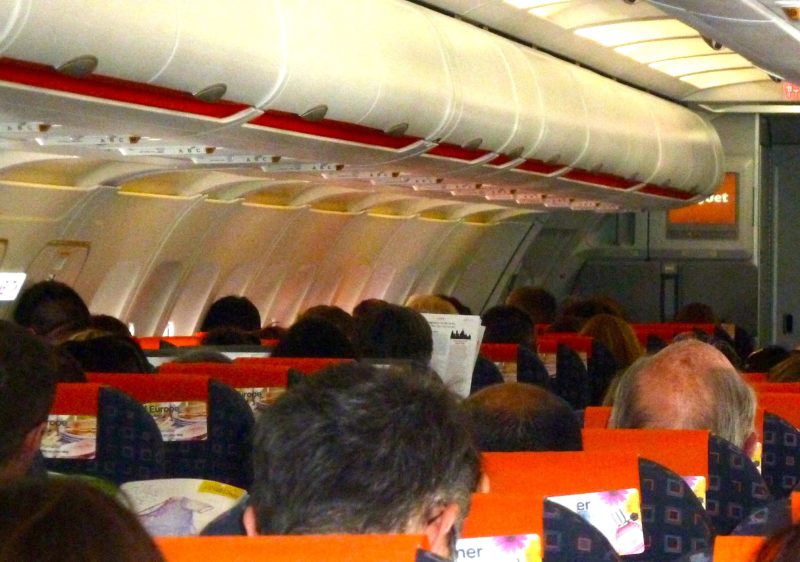
easyJet in normal times. Image © PlanetSKI.
“That is something that we will do because I think that is something that the customers would like to see,” said the EasyJet chief executive, Johan Lundgren
“I think it’s important that customers understand that we are taking this very seriously, and first and foremost, our concern is about the customers’ well-being and our people’s well-being.”
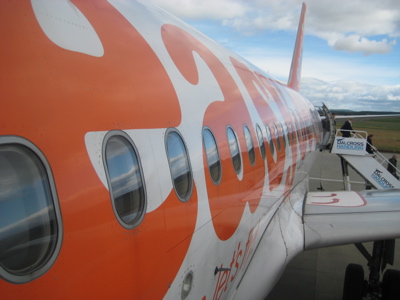
EasyJet. Image © PlanetSKI.
EasyJet has also just released it flight timetables for next Easter.
See further details here as we reported on Thursday 23rd April:
Coronavirus impact on skiing and snowboarding continues
From the conversations we have had with UK tour operators and agents, easyJet is the airline that has handled the crisis the best from their point of view.
One European national carrier that flies to the heart of the Alps and has a reputation for efficiency has been at the other end of the spectrum.
“Not only is the airline virtually uncontactable and not refunding, it has also deleted all flight records from our system which is a blatant breach of data retention records under GDPR,” said an industry insider to PlanetSKI.
“We are refunding all our clients from our own pockets.”
Heathrow is also preparing.
The airport is looking at introducing hundreds of hand sanitiser dispensers, additional cleaning and sanitation procedures as well as signage and floor stickers to remind passengers to socially distance.
Team members may be on hand to help manage queues and ensure safe and adequate spacing between passengers.
“Heathrow is ready to work with Government and industry on science and research to develop measures for rapid health screening of passengers prior to travel,” said a statement from the airport.
“The airport is looking to develop processes which will help provide future passengers peace of mind when flying, but wants to ensure there is an international consensus for common measures – so the benefits of global travel can be realised to support the economic and social recovery from Covid-19.”
Skiing next winter will be a different experience as a vaccine will likely not have been rolled out.
There is talk of people having to take Covid-19 tests before travel and perhaps having a certificate to prove they are free of the virus – a sort of coronavirus passport.
We may all be having coronavirus bracelets that are being trailed in Liechtenstein this week.
See the report in our rolling blog on Wednesday 22nd April.
Then there is the coronavirus app that Norwegians are being encouraged to download and use.
We reported about it in this article:
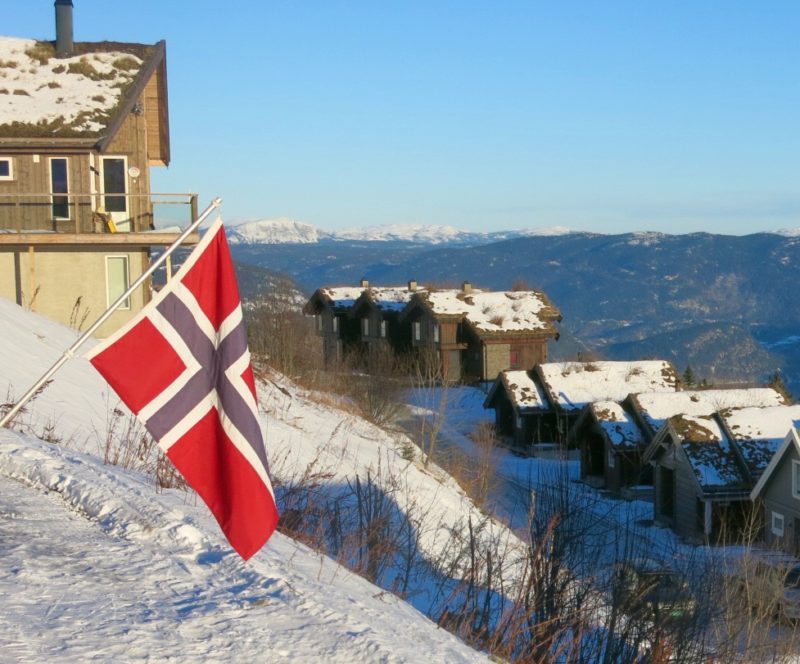
Norway. Image © PlanetSKI.
SKI OPERATORS
“It is a really difficult time for the ski industry, and we are all facing potentially catastrophic losses. I fear not all companies will survive,” said a senior figure from one of the large UK operators to PlanetSKI as resorts closed and holidays were cancelled.
“I have no doubt that all ski companies are doing everything they can to abide by the regulations and do the right thing for their customers, but they also have to survive.”
ABTA has asked the government to suspend the travel industry’s refund rules or face “catastrophic damage to the UK travel industry, and widespread consumer detriment.”
The travel industry body said that operators do not have the money to refund travellers in the current 14-day window and have asked for this period to be extended to four months.
The government has not met this request.
“We believe that as an industry we must come together and help consumers as best as we can, providing clear and concise information to those with bookings,” said the founder of Oxford Ski, Rupert Longson.
“At the same time, while it is understandable customers want to know their money is safe, by taking alternative forms of a refund or postponing bookings to later dates, you will help the industry and the many thousands of people that rely on bookings for work.”
Skiworld, the UK’s largest independent ski tour operator, carrying more than 20,000 guests per season to 41 resorts in Europe, the US and Canada, said customers could defer their holiday until 2021 or take a Skiworld ‘credit’ to the same value.
The charities have been hit hard too.
“We were fortunate that many of our alpine fundraising challenges, such as our AJ Bell Courmayeur Classic event, were able to take place in January before the resorts were closed,” said Snow-Camp.
“However, all our spring and summer fundraising activities have either been cancelled or are hanging in the balance.
“This does mean that the charity will lose a significant percentage of its income this year.
“Our fundraising events contribute to nearly 20% of our total income, so this will have a big impact.”
Disability Snowsport UK has launched a crowdfunding campaign to try to raise much-needed funds.
We reported on the initiative on the 12th April in our rolling blog.
It has so far raised almost £20,000.
And yet there are signs of hope.
The travel industry has been dealt a severe blow but, as we said earlier, it happened at the end of the winter.
Skiing is a seasonal business and the main impact of Covid-19 so far is coming out-of-season for the majority of the snowsports industry.
The businesses that survive will be the ones that recognise the reality of the current situation and act on the position we are in, rather than what they would like it to be.
We are in uncharterred territory but there is a path through it.
Skiers and snowboarders are passionate about their sport and many will find ways to do it and will be prepared to participate in any social distancing arrangements and travel to resorts in whatever the safe ways are in order to spend precious time in the mountains.
At the end of all this perhaps the one thing most of us will want to do is have a holiday and go skiing.
PlanetSKI has already booked our apartment in Aosta in Italy for the season of 2020/21.
It will undoubtedly be a very different experience, but as long as there is snow in the mountains and lifts running we will abide by whatever rules and measures are needed.
And exercise a large degree of common sense.
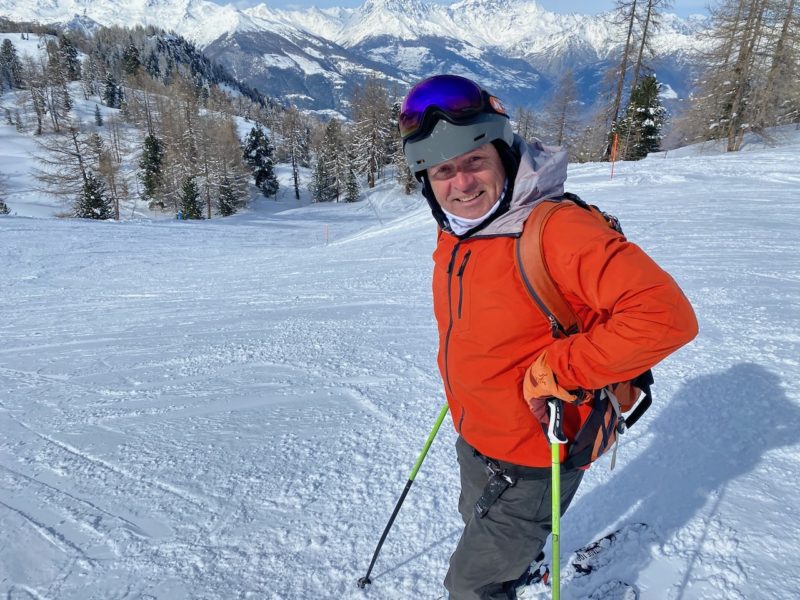
Aosta Valley, Italy. Image © PlanetSKI.










